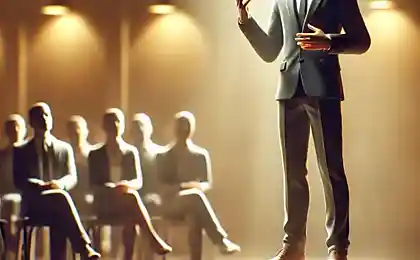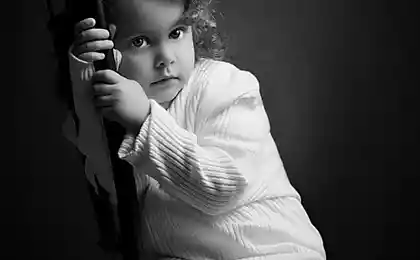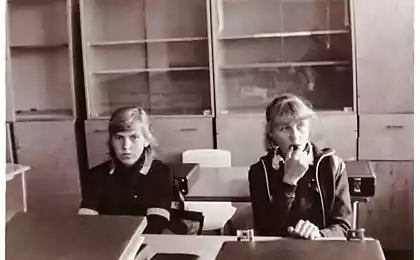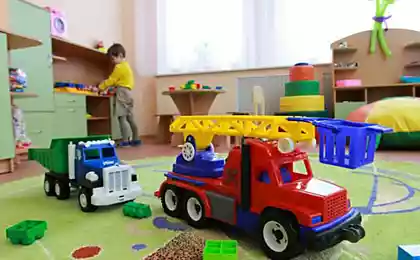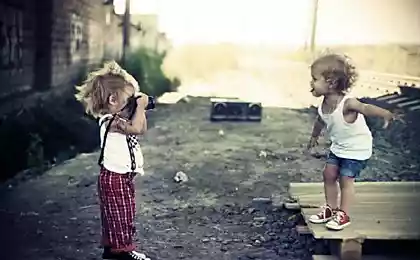449
How to talk with your kids: Simple, powerful and effective words
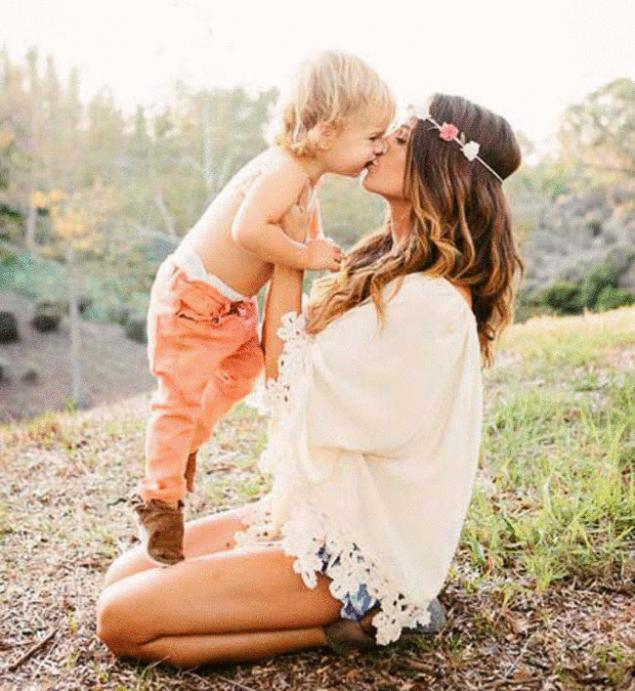
Simple, powerful and effective words. Here you will not find a "thank you" or "patience", although they will also be very important. Our post – just a reminder that we all know how we feel wrong.
Whisper
Even while working at school, I promised myself not to yell at students and generally to anyone. The scream is a manifestation of its own weakness. But children, especially small ones, to respond to the tone more than the content of the speech. How to reach fidgets without raised voices?
Checked: only medication that works better than yelling (even if they're the best of intentions), is when you lean to the ear of your kid by installing before this eye contact, and start to speak very quietly. This requires parents high self-control. But gives amazing results.Can be
Because traditional to say "no" – as if to remove the baby from the guard. Ban "in the forehead" may provoke a tantrum, especially when the child who hears "no", hungry or just tired. Alternatively we offer a "maybe" – at least it's honest. It's better than to add fuel to the fire with endless "models living". If the children ask: "And we go outside?", I calmly said: "Maybe." And added: "If you take all the toys on the shelves and will quickly dress up". This helps to motivate children to behave appropriately. And further all is simple: they cleaned the toys, got dressed – went out, not removed – go. It is important that adults themselves have acted on their own promises. The words "View" and "later" are just as effective.Sorry
Adults make mistakes, too. What can I do? We are not gods. We are ready to apologize to relatives, friends, colleagues at work. And our children are in need of courtesy no less than adults. This models respect for others. The children really need to see exactly this kind of communication is a good example specifies the behavior of the format in the future, and it also helps to understand that no one in this world is not perfect, that, in General, really.Stop
The signal that stops the child, terminating its action, which we want to stop, and tells what to do instead. If the kids are running around the apartment, it is useless to preach, it is enough to say "Stop!" and give tool: "Sit at the table and fold the puzzle/build a castle". Define with the boy, "Stop!" acts on all, without exception, in all circumstances, all the actions stop (if the play becomes dangerous, unpleasant, too loud...). The main thing – not to abuse this powerful tool, otherwise it will cease to be effective.Eyes
We all listen more attentively, looking in eyes to the interlocutor. When I want to be sure that the guys I really listen to and hear, I ask: "Where are the eyes?" Hint: you need to say it calmly, better affectionately, with a smile or neutrally, otherwise the kids just don't want to look at you. Who would want to meet his gaze with an angry and screaming person? And as only children's eyes glued to you, you hold children's attention.Learn
If our child makes a mistake, comes to the aid of the phrase "It's okay, do not worry – we all learn!" It is also useful for protection from oblique views, from people who are condemning look at us with the child. In the end, we all learn, including those who drills us.You can do it!
Remind them about this child, when he doubts in his abilities. Failure is just a signal that the baby will achieve the desired result, if you put a little more effort, practice. Tell the children that you know they can. And be sure to open a secret: much of what you now do with ease, when something is demanded from you so much efforts.Be!
When children ask questions, give them your eyes and attention. When the kids of something telling, listen. Be with your child. It means so much to the little man. Somehow on the way home from kindergarten my three year old son asking for a hundred the first question, I realized that I automatically answer "Yes-no" (the strength after a day of work at the end), and the conversation I still wanted to maintain. In the end, I heard the insistent, "Well, mother, speak! You don't say!" The children immediately feel how we are immersed in a conversation with them.Always!
Not surprisingly, where the children are always noisy and restless! Tantrums happen, cleaned out sweets, canceled entertainment. But some things remain sacrosanct. And our love for our children. It is very important to tell them about it. Especially in those days, when something went wrong, feeling frazzled and exhausted. This part of the evening bedtime ritual. I hugged her son and tell him "Mommy loves you very much and always will love, whatever happened." It is important for children to know that our love for them is unconditional, and unconditional. Constant. Indelible. Always!Laugh.
Many things that we as parents are annoying, most likely, would not be so if we could just laugh at them. Good laughter is a great reset button if you want the switch.
The truth is that these 10 words not only help parents, so be stronger, attached to the parent lexicon.
Source: talumala.com/ru/mir-semi/deti/vospitanie/5072-kak-govorit-so-svoimi-detmi











